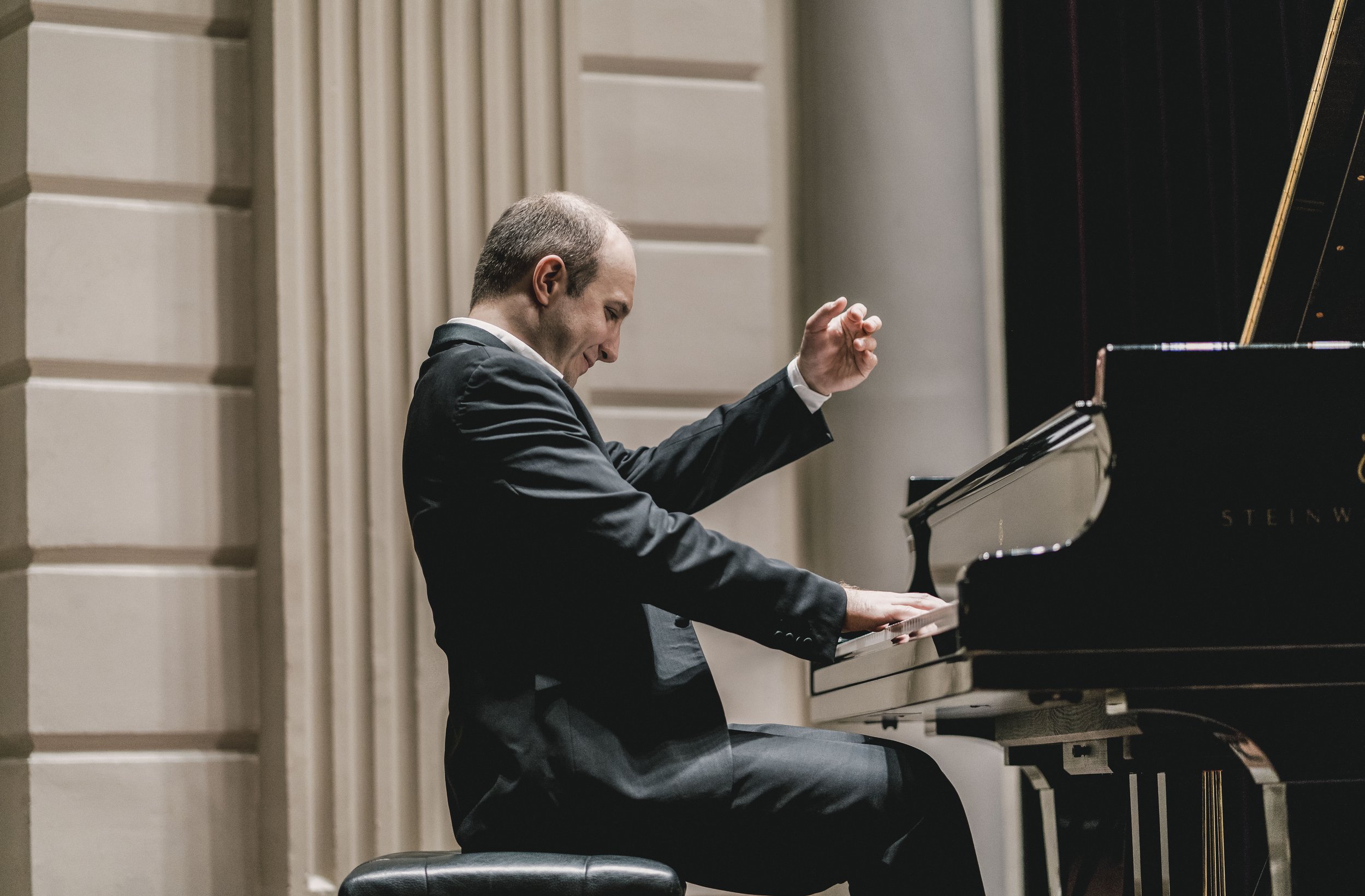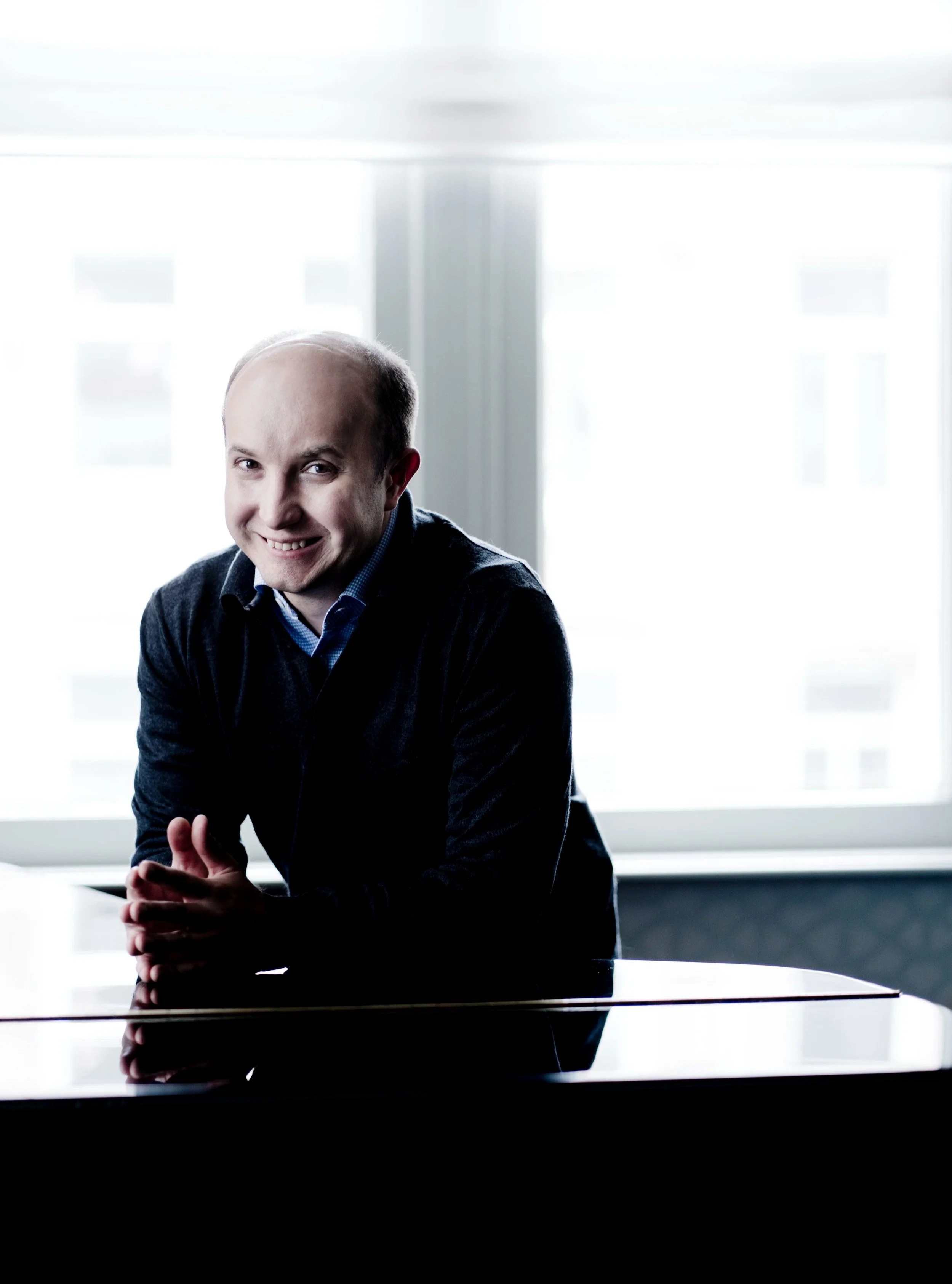Ukrainian pianist Alexander Gavrylyuk transports audiences to an immersive musical universe with Haydn, Chopin, and Mussorgsky
Ahead of Vancouver Chopin Society concert, Wigmore Hall artist-in-residence talks about Chopin’s “beautiful expressions of love” and “mountains of virtuosity”
Alexander Gavrylyuk. Photo by Marco Borggreve
Vancouver Chopin Society presents Alexander Gavrylyuk at St. Andrew’s-Wesley United Church on October 21 at 7:30 pm
BEFORE CONSIDERING the pianistic excellence of Alexander Gavrylyuk, it’s necessary to make a short stop at the theatre—not the venue that the Ukrainian-born musician will perform in for the Vancouver Chopin Society, but the Moscow Art Theatre, circa 1898. It was there and then that the actor and director Konstantin Stanislavski began to develop a set of aesthetic principles that still hold sway over the modern stage—and, if Gavrylyuk is any indication, the concert hall as well.
Stanislavski’s philosophy continued to evolve until his death in 1938, but the gist of his thought is that any on-stage role is best approached through a combination of intellectual research and emotional revelation. Yes, texts are to be mined for subtext and psychological nuance, but also to illuminate what Stanislavski’s biographer Jean Benedetti described as “the play’s dynamic, its action, the thoughts and feelings of the protagonists, [and] the world in which they lived”.
Gavrylyuk does something very similar when looking at a musical score.
“My personal approach is to approach every composer from an authentic kind of perspective as much as possible,” he explains in a telephone call from Sydney, Australia, where he now lives. “So I like the idea of Stanislavski, who dedicated his life to finding the so-called ‘artistic truth’ on the theatre stage. I was very moved by his book [An Actor Prepares] back in the day when I was 18 years old, and I liked his approach of selflessness and a complete transformation into every character he was living through, I should say. Not ‘playing’, but transforming into fully, folding himself into the character. I try and develop a similar approach to every piece that I’m preparing, to try and find that golden balance between erasing myself from the picture enough that the music itself can take over and lead me forward, as opposed to having an illusion of me creating a so-called ‘interpretation’.
Alexander Gavrylyuk. Photo by Marco Borggreve
“At first, in a way, it felt counterintuitive, based on my education and the traditional notions,” he allows. “But the more I went against that sort of traditional approach, the more I realized that I was opening up new horizons and allowing for the authenticity of every composer to take the lead. It’s a very subtle sort of process, and it’s very difficult to describe it precisely, but through it I find myself more at ease with the soul, so to speak, of the music that I’m playing. So every composer is like a little planet, I guess: a little universe that one can immerse into and try to connect with, as opposed to the approach that I had in my early years of piano, where I was trying to create an interpretation or even trying to force my ideas onto the piece. Which worked, to a point, but it was never overwhelmingly convincing to me.”
The planets that Gavrylyuk will visit during his Vancouver Chopin Society recital are those of Joseph Haydn, Frédéric Chopin, and Modest Mussorgsky, a combination that can be read as a concise history of 18th- and 19th-century pianism. Haydn established the basic form of the piano sonata, Chopin added Romantic flamboyance and sheer virtuosity, and Mussorgsky enlarged the form considerably by linking it to the visual arts.
The program is also near-identical to the one that Gavrylyuk will present at London’s famed Wigmore Hall, where he is artist in residence, next month. Is there an aesthetic thesis behind his choice of works?
“I’ve tried to create a very versatile program,” the pianist explains. “Haydn, I think, is in a way an under-appreciated composer, and this sonata [the Sonata No. 47 in B minor] in particular is full of charm, humour, and drama. It’s like a minimalistic sculpture that one can admire. It’s a really beautiful work, followed by some famous études by Chopin, and his Fantasy in F minor—which I like, because it corresponds to the idea of Mussorgsky’s Pictures at an Exhibition being a fantasy as well.”
Alexander Gavrylyuk. Photo by Marco Borggreve
The Mussorgsky suite is nominally a programmatic depiction of 10 canvases by his painter friend Viktor Hartmann, but Gavrylyuk’s Stanislavskian interpretation, not surprisingly, suggests that it possesses much greater depth.
“I think it really captures Mussorgsky in the act of trying to free himself from the constraints of the society he lived in, the environment he lived in,” the pianist says. “He’s trying to paint a very liberating picture of life, and I think it’s a beautiful correlation to Chopin’s Fantasy. Chopin paints a very tragic and dramatic picture of life, but he also finds liberation in his own way when we hear those pure, beautiful expressions of love among the torturous, dramatic mountains of virtuosity.”
Given that one of Hartmann’s canvases showed the famous “Great Gate of Kyiv”, is there any irony or hidden message in a Ukrainian playing music by a Russian looking at a painting of Ukraine? Gavrylyuk gives a typically articulate and impassioned response.
“I condemn the Russian aggression in Ukraine, and I condemn anyone who supports any aspects of that,” he says. “But at the same time I’m also against cancelling Russian composers or Russian artists that have nothing to do with it, or who have clear notions of the inclusiveness, love, and passion that we all feel. Mussorgsky is one of those composers, as is Rachmaninoff. I really think we should be celebrating their music because it unites the world rather than making it more polarized—and that’s very important today, to try to unite the world as much as we can.”















